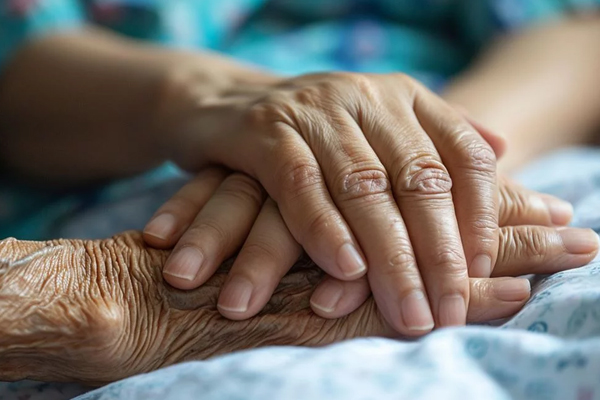Palliative Care for Elderly

Palliative Care for Elderly
What is Palliative Care?
Palliative care is a specialized approach to medical care that focuses on providing relief from the symptoms, pain, and emotional stress associated with serious illnesses. For elderly individuals, palliative care aims to improve their quality of life by addressing their physical, psychological, social, and spiritual needs. It is provided alongside curative treatments or as the main focus when curative options are no longer effective.
When is Palliative Care Needed for the Elderly?
Palliative care is beneficial for elderly patients suffering from chronic or terminal illnesses, including:
- Cancer
- Heart failure
- Chronic obstructive pulmonary disease (COPD)
- Kidney disease
- Dementia, including Alzheimer’s disease
- Parkinson’s disease
- Stroke
- Multiple chronic conditions
Goals of Palliative Care
The primary goals of palliative care for elderly patients are to:
- Manage pain and other distressing symptoms
- Provide emotional and psychological support
- Assist with complex decision-making regarding treatment options
- Coordinate care among various healthcare providers
- Support families and caregivers
- Ensure comfort and dignity in the final stages of life
Key Aspects of Palliative Care for the Elderly
1. Pain and Symptom Management
Effective palliative care involves relieving the elderly patient’s physical discomfort. Common symptoms addressed include:
- Pain: Through medication, physical therapy, or non-pharmacological approaches
- Shortness of breath: With oxygen therapy, medication, or breathing exercises
- Fatigue: Managed through rest, physical activity, or nutritional adjustments
- Nausea and digestive issues: Controlled with dietary changes and medications
- Emotional symptoms: Addressing anxiety, depression, and fear through counseling and relaxation techniques
2. Emotional and Psychological Support
Aging and chronic illness can be emotionally overwhelming for both the elderly and their families. Palliative care provides:
- Counseling and therapy: For coping with the emotional aspects of illness and aging
- Support for families: To help loved ones manage caregiving responsibilities and grief
- Spiritual care: Addressing existential questions, providing comfort, and aligning care with personal values and beliefs
3. Coordination of Care
Elderly patients often have multiple health conditions, requiring care from various specialists. Palliative care helps by:
- Coordinating between healthcare providers: Ensuring that treatments are aligned with the patient’s goals and overall well-being
- Managing transitions between care settings: Whether moving from home care to a hospital or hospice, smooth transitions are critical for patient comfort
4. Advanced Care Planning
Palliative care for the elderly also focuses on helping patients and families make important decisions about:
- End-of-life care: Understanding treatment options and deciding on interventions, such as resuscitation or mechanical ventilation
- Living wills and healthcare directives: Ensuring the patient’s wishes are documented and respected
- Legal and financial planning: Guidance on estate planning, durable power of attorney, and other legal concerns
5. Family and Caregiver Support
Palliative care extends beyond the patient to support families and caregivers who may be dealing with emotional strain, decision-making, and caregiving challenges. Services include:
- Counseling and bereavement support
- Respite care: Allowing family members time to rest and recharge
- Education: Teaching caregivers how to manage symptoms and provide care at home
Palliative Care vs. Hospice Care
Palliative care is often confused with hospice care, but they are not the same. While both focus on comfort and quality of life:
- Palliative care can begin at any stage of illness, even alongside curative treatment.
- Hospice care is typically reserved for patients in the final stages of life, where the focus shifts entirely to comfort and end-of-life care.
Benefits of Palliative Care for Elderly Patients
- Improved Quality of Life: By managing symptoms effectively, palliative care helps elderly patients maintain a higher quality of life and independence for as long as possible.
- Holistic Approach: Palliative care addresses not just the physical aspects of illness but also emotional, social, and spiritual needs, providing comprehensive support.
- Enhanced Communication: Patients and families are empowered to make informed decisions about care, ensuring that the patient’s wishes are honored.
- Reduced Hospitalizations: With better symptom control and proactive care management, elderly patients can avoid unnecessary hospital visits and stay in the comfort of their homes or care facilities.
- Support for Families: Caregivers receive guidance, emotional support, and respite, helping them navigate the complexities of caring for an elderly loved one.